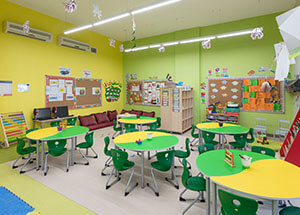More info Call

How to boost your child’s creativity
Being creative isn’t just about making something. Instead, creativity should be seen as a way of living, with an emphasis on embracing originality and making unique connections between seemingly different ideas. If we’re creative, that means we approach life as a journey and bring to life our thoughts and ideas in new and unique ways.
It is important to encourage children’s creativity for the benefits it brings to their lives and to their character development. To boost your child’s creativity, consider the following principles:
Create a creative environment
When children are given free and unstructured time to play, they naturally embrace the concept of creativity. This doesn’t necessarily have to take place in a fancy playroom. The best resource is a simple safe space for their imagination to roam. Toys, too, do not have to be the latest and the best. Instead, try materials they can use to create something of their own, like art supplies, cheap cameras, costume components, and building materials. This might result in a mess, so make room for it (mentally and physically)!
Don’t forget to shift your mindset
One important part of nurturing creativity is allowing for mistakes. Children who are afraid of failure are less likely to think creatively. Therefore, encourage children to look at mistakes as opportunities for growth rather than as failures. This, of course, begins with parents. Celebrate innovation and creativity and encourage your children to accept their mistakes as potential points for growth. Share the mistakes you've made recently so that they understand that it’s not the end of the world, and, in fact, often many positive things come from a mistake.
Remember to save your praise for later
Children have an innate ability to access their creativity when they play freely on their own, and unfortunately, overparenting can adversely impact this. Try stepping back to avoid making too many comments, which includes praising them. This tends to distract them while they’re in flow and thinking independently. They are creating for creating’s sake, not to be rewarded. If you hold your praise until after they’ve finished their project and present it to you, you’re are allowing them to experience the creative process as its own reward. And remember: focus on effort rather than outcome, such as, “I see that you tried some new colors for this painting,” or “I’m impressed that you worked so hard on this project.”
Put some energy into your own creativity
Remember that children learn from watching their parents. That’s why it’s worth spending some time being creative yourself. Sometimes you can join your child when they’re drawing, building and/or coloring. In your own time, develop a creative outlet, one that taps into your own creative energy. Children who watch their parents engage in creative activities are more likely to embrace these, and other activities themselves.